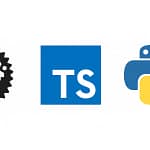Introduction In 2025, technology is everywhere, you use it when you wake up, at work, in school, and even while relaxing. Phones, TVs, apps, and smart devices make life more fun and convenient, but they also open the door to privacy risks. Most people don’t realize how much personal information is collected daily without their permission.
From what you search online to where you go and what you buy, companies and hackers can learn a lot about you. Even worse, your data can be misused to scam you, spy on you, or damage your reputation.
That’s why now is the time to take control. This guide will show you simple and powerful ways to protect your privacy and keep your personal life truly personal.
How Technology Devices Collects Your Personal Data
Technology today is very advanced, and many tools we use daily quietly gather our personal information. This includes phones, apps, smart TVs, and home assistants like Alexa or Google Nest. These devices are always active, collecting details about how we talk, what we search for, and how we live our lives. For example, when you speak to your smart speaker, it may save your voice commands to improve its service, but those recordings could also be accessed by others.
Social media platforms are another major source of data collection. When you post photos, comment on a friend’s post, or like a video, that data is recorded and analyzed. These platforms know your interests, who you talk to, and even where you are.
Web browsers also play a role. When you browse the internet, your activity is tracked. The websites you visit, the links you click, and the items you search for are often saved to create a profile about you. This profile is used for advertising or can even be sold to other companies.
Even health and fitness apps are involved. They track your steps, your sleep, and your heart rate. Some of these apps may even sell your health data to third-party advertisers, without you realizing it. This kind of information is deeply personal and should be handled with care.
Understanding how all of this works is the first step to protecting yourself. It helps you make better decisions about the apps you use, the devices you buy, and the information you choose to share online.
READ ALSO: Most Dangerous Scams in 2025, And How to Outsmart Them
Emerging Privacy Risks You Should Watch Out for in 2025
1. AI and Surveillance Cameras
In many places today, cameras are not just watching for safety, they are identifying people using their faces. This technology, called facial recognition, helps security officers find suspects or control crime, but it can also be used in ways that invade people’s privacy. For example, these cameras can follow you without your permission and store details about where you go and what you do, even if you’ve done nothing wrong.
In some African cities like those in Nigeria and Kenya, governments have added these cameras to improve security. But many people do not know who is managing this technology or how long their face data is being saved. There are not enough rules or clear explanations about how the information is handled.
Even shops and supermarkets use AI cameras now. These cameras watch where you look and how long you spend in certain parts of the store. This helps them know what products catch your eye, so they can advertise better. But it also means that every time you walk in, you are being studied, sometimes without knowing it. This kind of quiet watching can feel like a loss of freedom and makes many people uncomfortable.



3. Data Leaks and Scams
These days, it’s becoming more common to hear about big companies getting hacked. When this happens, the personal details of millions of people can be stolen. This includes things like your email, phone number, password, and even private messages. In 2024, X (formerly Twitter) was hacked, and more than 600 million users had their information exposed. Imagine people reading your private chats or using your email to scam others, that’s how serious it can get.
Sometimes, scams come in the form of fake websites. In Africa, there was a case where a website pretended to be a government program offering help to poor families. Many people believed it was real and entered sensitive details like their Bank Verification Number (BVN). These scammers then used the information to steal from them.
There are also cases where people use technology to hurt others. In one shocking incident in Abuja, a man secretly recorded his girlfriend during private moments and shared the video online to shame her. It ruined her reputation and mental health. These examples show how dangerous it can be when our private lives are not protected.
3. Weak Privacy Laws
Some countries have good privacy laws (like GDPR in Europe), but many don’t enforce them well.
In places like Nigeria, laws are still catching up. This means most people have to protect themselves.
4. Creepy Online Ads
Have you ever searched for something online, maybe a pair of shoes or a blender, and then noticed ads for that exact thing following you everywhere? It might feel like your phone is reading your mind, but what’s really happening is tracking.
Most websites use small files called cookies to remember what you do online. These cookies collect information about the pages you visit, what you search for, and how long you stay on a site. This data is then used to build a profile about you, which advertisers use to send you targeted ads. That’s why you keep seeing the same product in your news feed, email, or even on completely different websites.
Sometimes, it can feel very uncomfortable. For example, if you look up something private, and then an ad about it shows up while someone else is using your phone or laptop, it feels like a breach of privacy. Even more, big ad companies can collect this kind of information across multiple websites and apps, tracking you even if you never gave them clear permission.
This might not only feel creepy, it can also lead to bigger issues like manipulation or scams. When companies know too much about you, they can push certain products, content, or even political opinions in a way that influences your decisions without you noticing. That’s why understanding how these ads work is the first step in choosing better tools and settings to protect your privacy online. you ever searched for shoes and suddenly every website shows you shoe ads? That’s not magic, it’s tracking.
Websites use cookies to follow what you do online.
Example: Gist411, like many blogs, uses cookies. But big ad companies also use those cookies to build a profile of your habits and sell ads.
JUST FOR YOU:How to Create a Debt Repayment Plan: The Simple Way to Breathe Again
How to Protect Your Privacy in Real-Life Situations
1. Safer Online Payments
Making payments online is something many people do every day, whether it’s to send money, buy goods, or pay bills. But not everyone knows that these actions can be risky if they’re not done carefully. When you enter your bank details, card number, or passwords into an app or website, that information can be stolen if the platform isn’t secure.
To stay safe, it’s important to use apps or services that take extra steps to protect you. One helpful tool is something called two-factor authentication (2FA). It means you don’t just enter your password, you also get a code sent to your phone or email to confirm it’s really you. This way, even if someone guesses your password, they can’t access your account.
You should also stick to well-known and trusted payment platforms. These platforms usually have strong security in place to protect your data. Another simple but powerful tip is to avoid using public Wi-Fi, like the kind you find in restaurants or parks when making payments. Public networks can be easily hacked. Instead, use your mobile data or connect through a VPN, which hides your data from anyone trying to spy on your connection.
By following these steps, you can make sure your money and personal information stay safe whenever you’re paying online.
2. Social Media Privacy
Social media is a big part of everyday life for many people. It’s where we connect with friends, share our thoughts, and post pictures. But what most people don’t realize is that social media apps often collect a lot of information about them in the background. These apps don’t just know what you post, they also track your location, your browsing habits, and how long you spend looking at different content.
This kind of tracking can lead to your personal life being exposed in ways you never intended. Your location data might reveal where you live, work, or hang out, and your behavior online can be used to create a digital profile that advertisers or even strangers can use.
To protect your privacy, you need to take a few simple steps. Start by going into your phone settings and turning off location access for social media apps. This way, they can’t follow your movements. Also, consider using web browsers that are built to block online trackers. Finally, adjust your privacy settings within each app so that only people you trust can see your posts. These small changes can help you stay in control of your online life and reduce the chances of your personal information being misused.


3. Smart Home Device Safety
Smart devices are now part of many homes, making life more convenient. From smart TVs and light bulbs to voice assistants and security cameras, these gadgets can be controlled with just your phone or voice. However, many people don’t realize that these devices can collect and share personal information about your daily habits.
For example, a smart TV might track what shows you watch and how often you watch them. Voice assistants like Alexa or Google Home may listen for commands, but they sometimes record conversations in the background without you knowing. Even smart bulbs and other simple devices can collect data on when you’re home and when you’re away.
To keep your privacy safe, it’s important to take a few easy precautions. First, always change the default passwords that come with the device, hackers often target devices that still use factory settings. Second, if your device has a camera or microphone, turn it off when you’re not using it. This prevents it from recording or listening without your consent. Lastly, set up a separate Wi-Fi network for all your smart devices. This creates a barrier between them and your main devices like phones or laptops, reducing the risk of a cyberattack affecting your personal data.
By doing these things, you can still enjoy the benefits of a smart home without giving up your privacy.
4. Keeping Children Safe
Children and teenagers use the internet every day to learn, play games, watch videos, and chat with friends. But the online world is not always safe. There are people who pretend to be friendly just to trick kids, and there are websites and apps that collect information about children without asking.
Many kids don’t understand the dangers of sharing too much online. When they post their real names, photos, schools, or locations, they may be giving away private details to strangers. Some games and social platforms also allow direct messaging, which can open the door to unwanted contact.
To protect them, parents need to be involved and informed. It starts by talking openly with children about the internet, what’s safe to share and what’s not. Parents can also install apps that help monitor what kids do online. These tools can block harmful websites, limit screen time, and alert you to suspicious activity.
The goal is not to scare children, but to teach them how to use the internet wisely and safely. When parents stay involved and set clear rules, children are more likely to make smart choices online and avoid risky situations.
Why You Should Protect Your Privacy
- Better Mental Health: When you know your personal life is not being tracked or watched online, you feel more relaxed and comfortable. This gives you peace of mind and reduces stress.
- Financial Safety: Protecting your privacy helps you avoid scams, fake websites, or fraud that could make you lose money. It also keeps your bank and card information safe from hackers.
- Less Spam and Annoying Ads: Using privacy tools like ad blockers or browsers that stop trackers means you won’t see as many unwanted ads popping up all the time. Your online experience becomes cleaner and faster.
- Making Smarter Decisions: When you understand how your data is used, you can choose better apps, websites, and devices. This means picking services that care about your privacy and don’t collect too much of your personal information.
What will you like us to cover next?. Drop your comment










